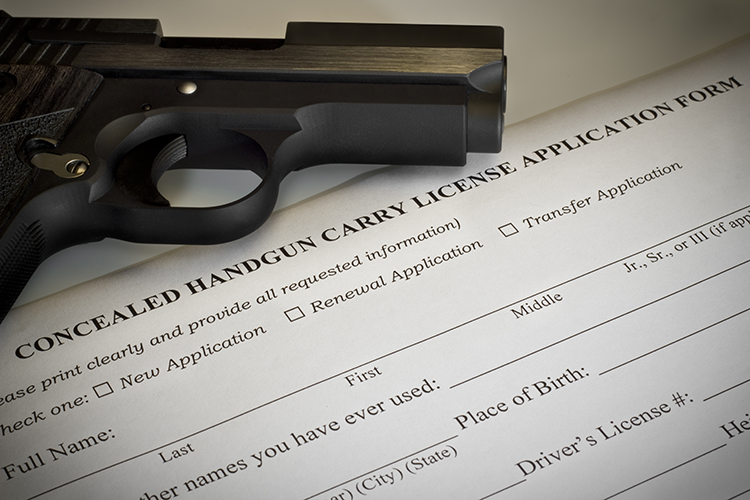Judge partly blocks law designating Times Square gun-free zone; New York will appeal

Image from Shutterstock.
New York Attorney General Letitia James has said she will appeal a ruling partially blocking New York’s concealed-carry restrictions, including the law’s designation of Times Square as a sensitive location where guns are banned.
James announced plans to appeal on the same day that U.S. District Judge Glenn T. Suddaby of the Northern District of New York issued a temporary restraining order banning enforcement of parts of the law.
New York enacted its law after the U.S. Supreme Court struck down the state’s requirement that “proper cause” must be shown to obtain a concealed-carry gun license. The Supreme Court’s June ruling was New York State Rifle & Pistol Association Inc. v. Bruen.
The new law replaced the “proper cause” standard with a requirement for good moral character, according to Suddaby’s Oct. 6 opinion. It also required disclosure of social media accounts and family contacts, character references, an in-person interview and firearms training. The law also listed sensitive and restricted locations where guns aren’t allowed.
Suddaby barred enforcement of provisions that:
• Require good moral character, unless the provision is construed to mean that permits will not be allowed for people who, as shown by their conduct, don’t have the character, temperament and judgment needed to use a weapon without endangering themselves or others—other than in self-defense.
• Require an in-person interview.
• Require contact information for the applicant’s current spouse, domestic partner, other adults living in the home and adult children, and that require disclosure of whether minors are living in the home.
• Require a list of social media accounts for the last three years.
• Ban guns in sensitive locations, including at Times Square, on mass transit and in places that sell alcohol. But he listed several exceptions. Under those exceptions, guns may be banned in places under government control, courts, polling places, places of worship, schools, protest locations, public areas restricted to the public because of special events, and places under heightened law enforcement protection.
Publications with coverage of the decision include Law.com, CNN, the New York Times and Law360. How Appealing noted the New York Times story and linked to the decision.
Eric Ruben, a professor at the Southern Methodist University Dedman School of Law, told the New York Times that the case shows the difficulty of reviewing the constitutionality of gun laws based on historical precedent.
“Bruen requires modern-day gun laws responding to modern-day problems to be evaluated on the basis of 18th- or 19th-century regulations, which were passed at the time that modern-day problems would have been unimaginable,” Ruben told the New York Times. “This opinion shows how that approach might lead to outcomes that defy common sense.”
In announcing the appeal, James said “commonsense gun control regulations help save lives.”
“Today’s decision comes in the wake of mass shootings and rampant gun violence hurting communities here in New York and across the country,” James said in the press release. “While the decision preserves portions of the law, we believe the entire law must be preserved as enacted. We will appeal this decision.”
The case is Antonyuk v. Hochul.



